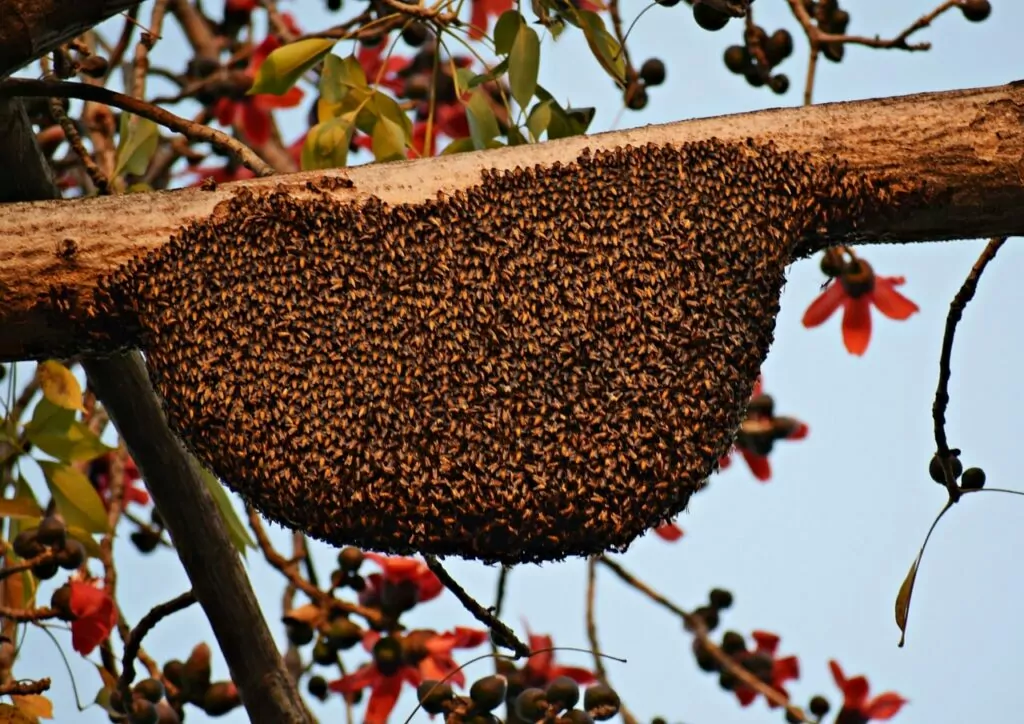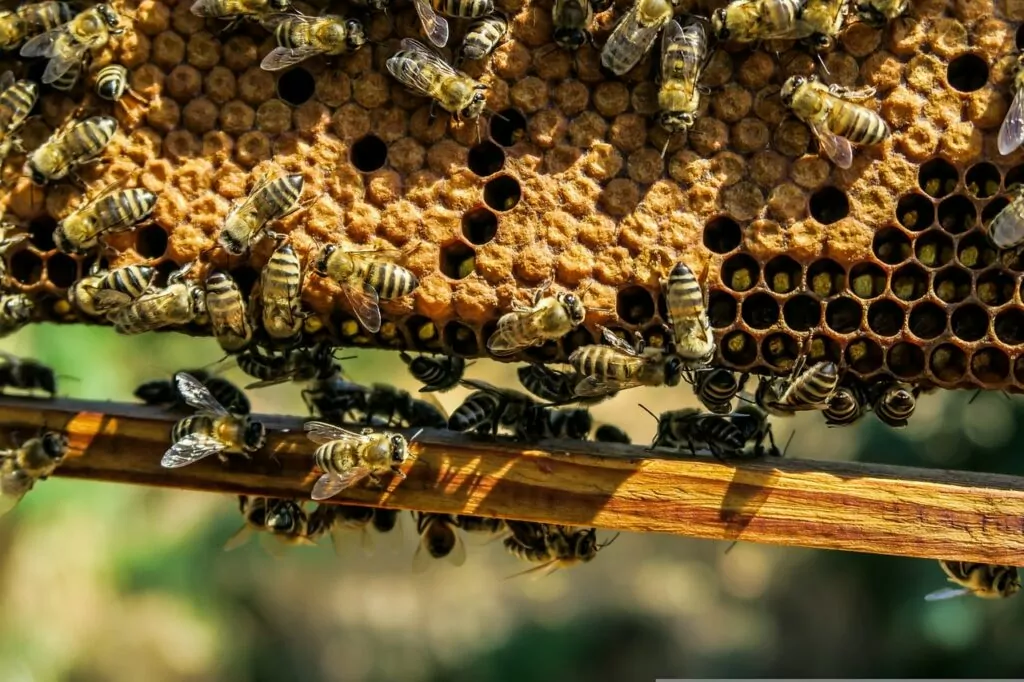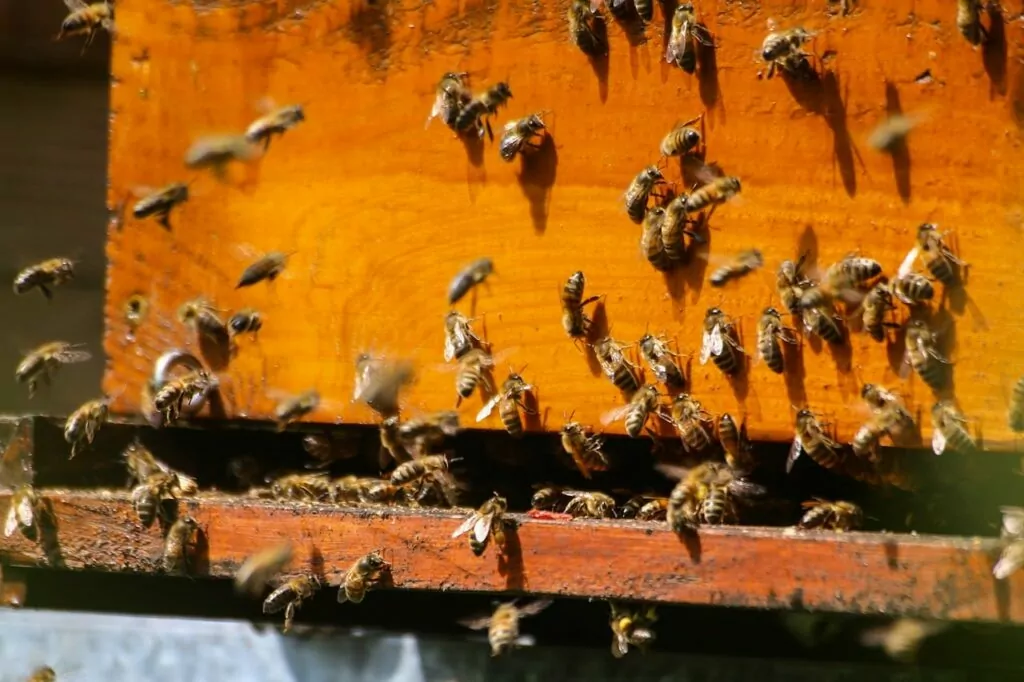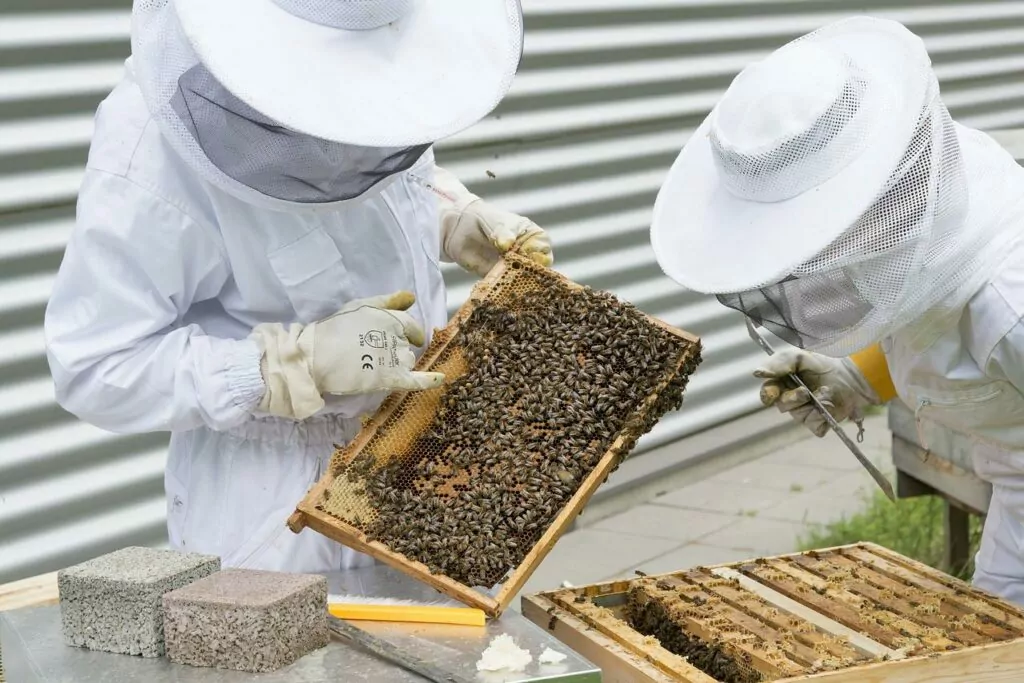You know how important bees are for pollination and keeping our ecosystems healthy, right? However, when bees switch to pest mode, it’s only natural to want them out of the picture.
Now, here’s the big question: Does borax kill bees?
Every pest control product in the US requires the EPA’s stamp of approval. Borax, a known pesticide, is likely to do the job if the label says so.
Here’s the buzz about how to use borax powder for bee removal.
What Is Borax?
Borax is an odorless, water-soluble, white powder commonly used as a household cleaner or an active ingredient in beauty products.
It’s a naturally occurring salt mineral found in dry lake beds. Synthetic forms of borax come from boron compounds.
You can find borax powder in the same aisle as laundry detergents.
Just a heads-up: Be cautious around small children and pets, as borax can be toxic when eaten.
Is Borax Bad for Bees?

Yes, borax is a bee killer.
In powder form, borax can cling to their fuzzy bodies. These unsuspecting insects end up swallowing borax as they groom themselves.
Here’s where it gets tricky.
Bees are social insects. Once they return to their bee hive, they spread borax through their hairs or by sharing regurgitated contents from their stomachs.
Borax dehydrates their tough outer shells called exoskeleton. When ingested, borax pulls off a double whammy, messing with their nervous and digestive systems.
As a result, bees die a slow death.
It’s usually the foragers, the busy bees out and about, that carry borax to the bee colony.
Does Boric Acid Kill Bees?
When it comes to killing bees, boric acid is better borax. Because of its finer grains, it’s harder for stinging insects to detect and easier for them to ingest.
If you have to pick between borax and boric acid, we’d say go for the latter.
Bait mixtures containing boric acid usually have high formulations. A thin layer of fine dust can pack up 98–99% boric acid.
How Fast Does Borax Kill Bees?
Borax doesn’t zap away bees right away.
As a natural insecticide, it’s a slow-acting poison. It’ll take a few days to kick in, drying out their tough outer shell and melting their insides.
By the time the bees feel the impact, they’ve already infected the whole tribe.
Why Would You Want to Kill Bees?
Honey bees seek nectar and pollen from flowers for food. However, they can be pretty sneaky, turning to sugar, fruit juices, and other sweet treats when flowers are in short supply.
Come summertime, you might find honey bees and wasps buzzing around trash bins.
That’s not the end of it. What happens when bees decide to live rent-free in your home, especially when they nest in attics and wall cavities? Bumble bees, for instance, are fond of insulation.
Well, once they’ve claimed permanent residence, bees can get rather feisty, and you’ll want to watch out for those stingers.
If you have allergy to bee sting, it makes perfect sense to want bees gone. Honey bees and yellow jackets are particularly notorious for their venom.
Bee allergy is a hairy situation. Aside from painful stings, it can cause the following severe allergic reactions:
- Hives
- Pale or flushed skin
- Weak pulse
- Rapid heartbeat
- Nausea, vomiting, and dizziness
- Swollen tongue
- Shortness of breath
- Loss of consciousness
Meanwhile, female carpenter bees don’t only sting; they have impressive drilling skills. A lone bee can excavate an inch into a wooden surface in roughly six days and create a tunnel 4-6 inches deep.
Now, these boring insects can keep coming back to the same wood year after year, leaving it like Swiss cheese with all those holes.
How to Kill Bees With Borax
Follow these steps to use borax to wipe out bees:
- Locate the bee nest.
- Wear protective clothing, including a beekeeper’s veil, gloves, and light-colored coveralls to protect yourself from stings.
- Select a borax product suitable for pest control.
- Create a mixture of borax and a suitable carrier like powdered sugar to attract the bees. You can also use a pre-made bait to save you the hassle.
- Place the borax mixture near entrance holes or sprinkle them in areas where you find bees hanging out. For holes made by carpenter bees, deposit some powder into the tunnels.
- After the bees have ingested the bait and the activity has ceased, use wood filler to seal any holes in wood or foaming spray to fill gaps in the wall to prevent reinfestation. Bees can smell old nest from miles away and pay a visit.
- If bee activity persists, repeat the process until all activity has ceased. Be patient, as it may take time for the borax to take full effect.
- Once the bees are no longer active, safely clean up any residues of borax mixture, keeping it out of reach of children and pets.
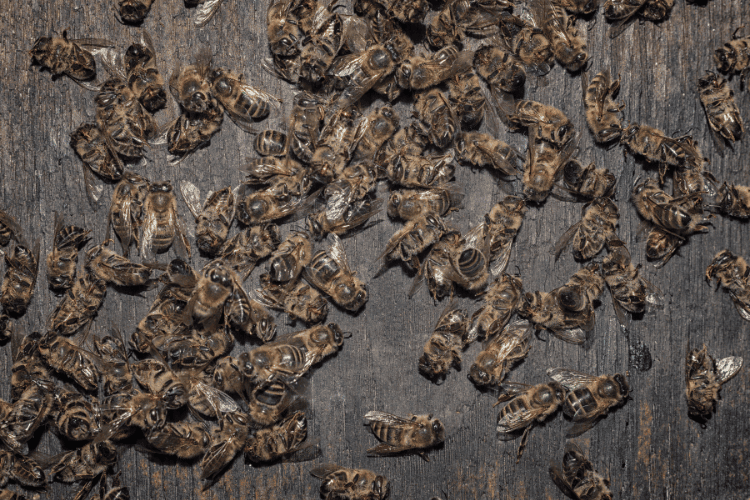
If you succeed in killing honey bees, prepare for some messy aftermath. Expect piles of dead bees, bee larvae, and wax combs, along with loads of honey still stuck inside.
Without live bees to maintain the combs, they can burst and bring down the hive. Things will literally go south as honey starts dripping. Worse, spoiled honey can seep through your wallpaper, baseboards, and even between different levels of your house.
To avoid this sticky situation, you must clear out the dead bees and their nest. You’ll have to open up sidings, clean up the mess, and patch up the wall.
This whole process can be expensive and a real headache.That’s why we recommend dealing with unwanted bee colonies as soon as you spot them.
The longer you wait, the more the colony expands, builds extra comb, stores more honey, and gets more defensive.
Final Thoughts
So, does borax kill bees?
To wrap up, borax, as well as boric acid, can knock out bees by drying out their outer coverings and poisoning their insides.
If you’ve got serious bee infestation, it’s best to bring in a professional beekeeper. They can skillfully remove the honeycombs without causing harm to our buzzy buddies.
- How Do I Get Rid of Ants Without Harming Bees? - April 16, 2024
- Do Bald-Faced Hornets Kill Honey Bees? & How to Protect Them - March 4, 2024
- Why Are Bees More Aggressive in the Fall? - January 6, 2024

